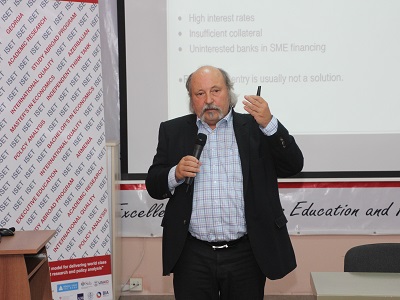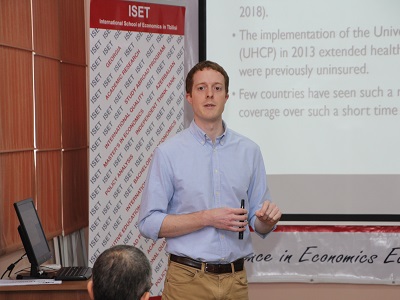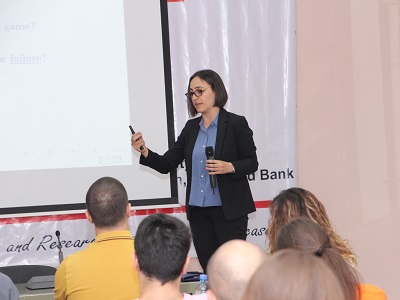Independent entrepreneurship is one of the main drivers of economic development and often manifests itself in the form of small and medium enterprises (SMEs). These start-ups trigger innovation, boost productivity and bring about structural change.
As Prof. Dr. Hansjörg Herr explained, Germany has been able to reap the benefits of this due to a multitude of internal factors. Its local banking system, for instance, is not profit-oriented and consists of savings banks, which is more accessible for entrepreneurs. The country’s vocational education system, too, plays a part, with its split system of teaching both practical skills and theoretical knowledge (in contrast to the more academic education practices of other Western countries). In addition, the government is very supportive of SMEs, as is the government’s development bank, the KfW.
Almost as soon as they are through the front doors, new arrivals to ISET are told that the institute is like a family, and it does not take long before the truth of these words is proved. ISET alumni frequently come back to visit, and not just to pay friendly visits to their old professors: many have gone on to work prestigious jobs in both the government and private sectors, or earn PhDs in American and European universities, and so return to ISET to present on topics that will be of interest to the community, both old and new.
Yet this does not just apply to students – it is equally true for former faculty. Adam Pellillo, now of La Salle University in Philadelphia, worked at ISET for several years, and now happily returns to lecture as a visiting faculty member. On June 22, Adam came back to ISET to present his ongoing research project into health insurance coverage in Georgia.
‘There are two types of people’ is the common opening for a number of jokes and idioms, but as research carried out by ISET alumnus Ala Avoyan (now of the University of Indiana) shows, there is some truth to this old adage.
Two different types of character were revealed over the course of study, which investigated ‘history dependent stopping’ factors in scenarios without any financial components. Using hundreds of chess games, Ala discovered that repeated losses or victories are indicators of whether a participant will continue to play; enjoyment from the next game, therefore, is derived from the result of the match preceding it. The incentive to stop or not is the variable which differentiates the two types.













